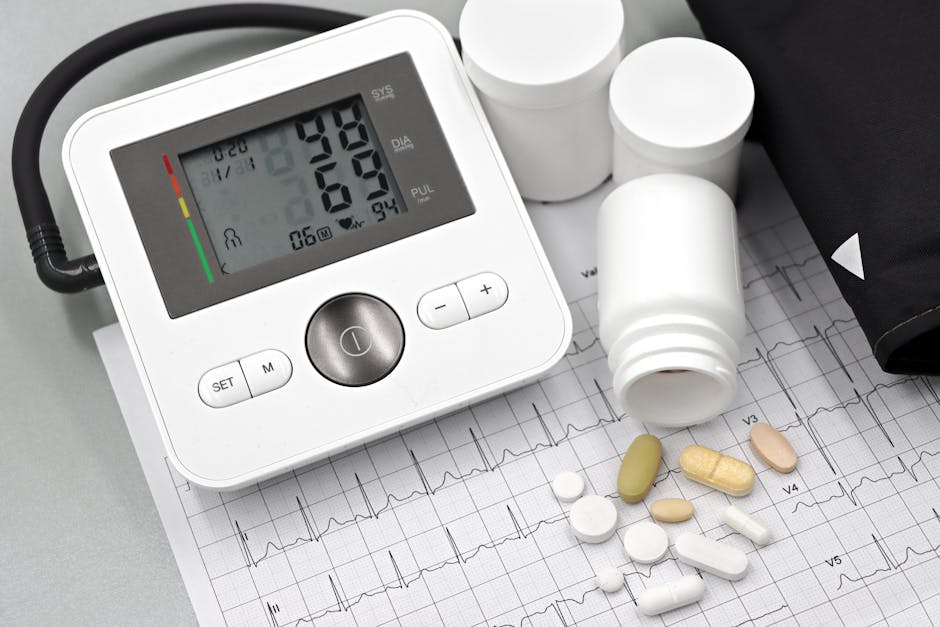The Future of Cholesterol Treatment Options
Did you know that nearly 40% of American adults have high cholesterol? This common health issue can lead to serious conditions like heart disease and stroke. But the good news is that treatments are evolving! Lets explore the future of cholesterol treatment options that could help you stay heart-healthy.
What You Need to Know About Cholesterol

Cholesterol is a waxy substance found in your blood. Your body needs some cholesterol to build healthy cells, but too much can lead to problems. There are two types of cholesterol: low-density lipoprotein (LDL), often called “bad” cholesterol, and high-density lipoprotein (HDL), known as “good” cholesterol.
Heres a quick breakdown:
- LDL Cholesterol: This type can build up in your arteries, leading to blockages.
- HDL Cholesterol: This type helps remove LDL cholesterol from your arteries.
Managing your cholesterol is key to maintaining heart health. So, what treatment options are available now and in the future?
Current Treatments for High Cholesterol

Before diving into the future, lets look at the current treatments. Most patients start with lifestyle changes. This includes:
- Eating a heart-healthy diet
- Exercising regularly
- Maintaining a healthy weight
- Quitting smoking and limiting alcohol
When lifestyle changes aren’t enough, doctors often prescribe medications. The most common medications are statins, which help lower LDL cholesterol. Other options include:
- Cholesterol Absorption Inhibitors: These drugs reduce the amount of cholesterol your body absorbs from food.
- Bile Acid Sequestrants: These medications help remove cholesterol from your bloodstream.
- PCSK9 Inhibitors: A newer class of drugs that can dramatically lower cholesterol levels.
While these treatments work for many, they don’t work for everyone. This brings us to future treatment options. what’s on the horizon?
What Are the New Cholesterol Treatment Options?

Scientists and researchers are constantly looking for new ways to treat high cholesterol. Here are some exciting advancements:
1. Gene Therapy
Imagine a treatment that could fix the genetic issues causing high cholesterol. Gene therapy aims to do just that! By altering genes, we could potentially lower cholesterol levels at their source.
Researchers are still in the early stages, but the potential is enormous. This approach could change the lives of those with genetic conditions like familial hypercholesterolemia, where high cholesterol runs in families.
2. New Types of Medications
Aside from gene therapy, new medications are emerging. Here are a few examples:
- Inclisiran: This medication works differently than statins. It targets a specific protein to help lower LDL cholesterol over time.
- Fibrates: These can lower triglycerides and may boost HDL cholesterol, making them an option for some patients.
These new medications offer hope for patients who don’t respond well to current treatments.
How Will Technology Change Cholesterol Treatment?

Technology is transforming healthcare in many ways. Here are a few exciting innovations:
1. Wearable Devices
Wearable devices can track your heart health in real-time. These gadgets monitor things like your heart rate and activity levels. Some devices even track cholesterol levels and send the data to your doctor. This can help you and your healthcare provider make informed decisions about your treatment.
2. Mobile Health Apps
Mobile apps can help you manage your cholesterol. Many apps provide personalized meal plans, exercise tips, and medication reminders. These tools can empower you to take control of your health.
Are There Natural Supplements for Cholesterol?
Some people prefer natural alternatives to medications. There are several supplements that may help with cholesterol management, including:
- Omega-3 Fatty Acids: Found in fish oil, they can help lower triglycerides.
- Plant Sterols and Stanols: These natural substances can lower LDL cholesterol by blocking it’s absorption.
- Soluble Fiber: Foods high in soluble fiber, like oats and beans, can help lower cholesterol levels.
Always talk to your doctor before starting any supplement. They can help you determine what’s safe and effective for you.
What Are the Risks of High Cholesterol?
it’s essential to understand the risks of high cholesterol. Heres why managing your levels is crucial:
- Heart Disease: High cholesterol can lead to plaque buildup in your arteries, increasing heart disease risk.
- Stroke: Blocked arteries can lead to strokes, which occur when blood flow to the brain is cut off.
- Peripheral Artery Disease: This condition occurs when arteries in the legs narrow, leading to pain and mobility issues.
Understanding these risks underscores the importance of keeping your cholesterol in check.
What Should I Ask My Doctor?
When discussing cholesterol treatments with your doctor, consider the following questions:
- What are my cholesterol levels, and what do they mean?
- What treatment options do you recommend for me?
- Are there lifestyle changes I should make?
- What are the potential side effects of my treatment?
Being informed can empower you to take charge of your health.
Closing Thoughts: The Future of Cholesterol Treatment
The future of cholesterol treatment is bright, with new medications, technology, and natural remedies on the horizon. Staying informed about your options is vital for managing your health. Remember to work closely with your healthcare provider to find the best approach for you.
With the right strategies and support, you can keep your cholesterol in check and reduce your risk of heart disease. So, take action today for a healthier tomorrow!
For more information about cholesterol and heart health, check out the American Heart Association.



